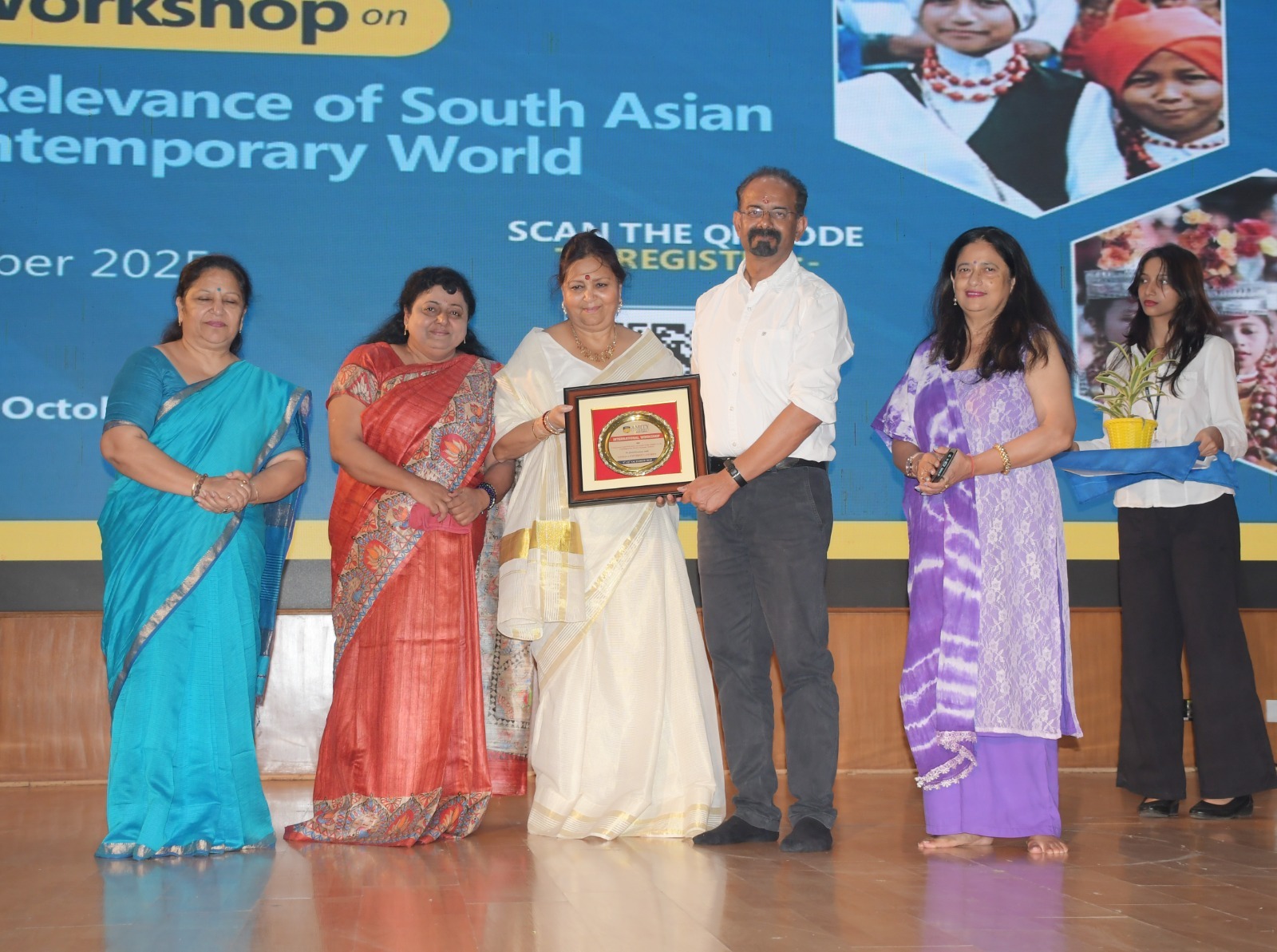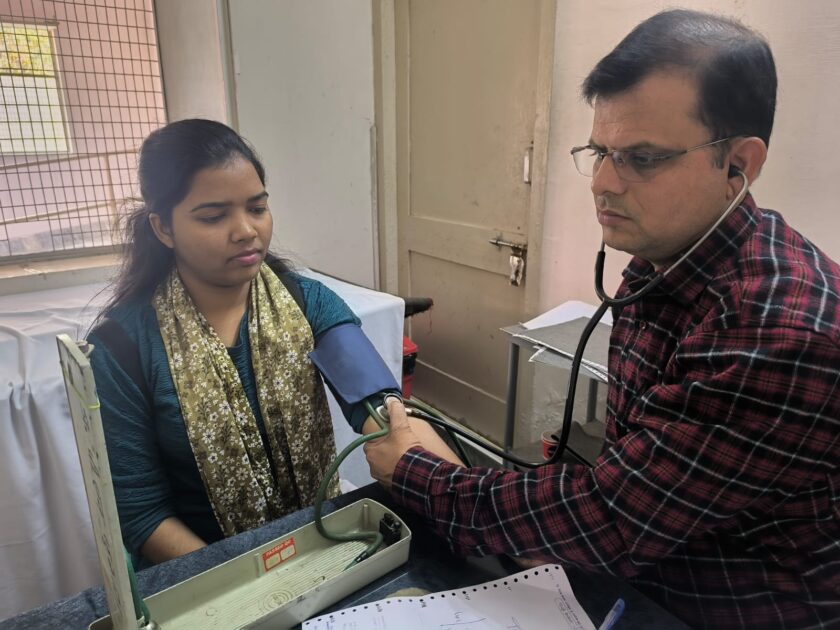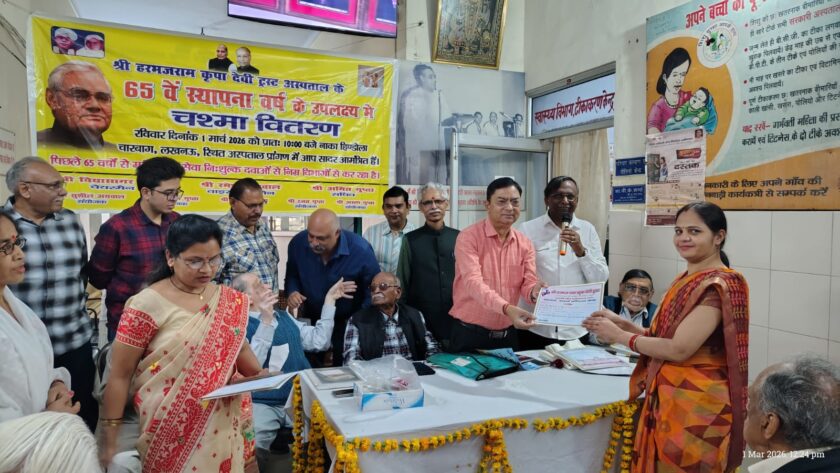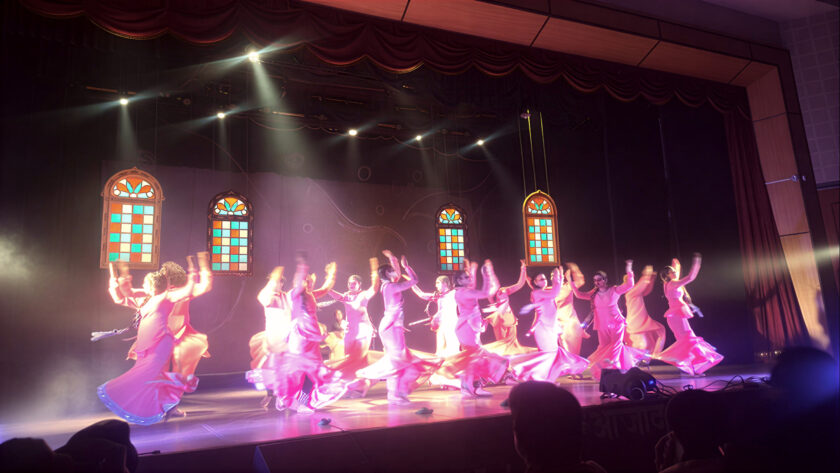Scholars from India and abroad explore the uniqueness and contemporary relevance of South Asian Studies
Lucknow: Amity University Uttar Pradesh, Lucknow Campus inaugurated a 10-day International Workshop on “Uniqueness and Relevance of South Asian Studies in the Contemporary World” (Autumn School) on Monday. Organized by the Amity School of Languages (ASL) in collaboration with Uppsala University, Sweden, the workshop aims to foster academic dialogue, intercultural learning, and critical discussion on the evolving role of South Asian Studies in a rapidly changing global context. The event will continue till October 16, 2025.
The inaugural ceremony was attended by an eminent panel of scholars including Mr. Divyaraj Amiya, Department of Indology, University of Tübingen, Germany and Zürich University, Switzerland; Prof. (Dr.) Madhu Rajput, Department of Western History, Lucknow University; and Prof. (Dr.) Kumkum Ray, Director, Amity School of Languages, Amity University Lucknow Campus. The dignitaries inaugurated the event with the traditional lighting of the ceremonial lamp.
Welcoming the delegates, Prof. Kumkum Ray emphasized that ancient archaeological findings demonstrate deep linkages between Indian and South Asian knowledge systems. “These discoveries highlight our shared cultural heritage and the intellectual continuity that has shaped this region for millennia,” she remarked.
Joining virtually from Sweden, Prof. (Dr.) Heinz-Werner Wessler, Department of Linguistics and Philology, Uppsala University, spoke on “The Future of Indology”. He noted that global academic interest in India’s ancient knowledge systems is growing, with renewed attention being given to texts like the Vedas and Vangmaya. “The image of India in Western academic circles is transforming. There is a growing appreciation for the depth of Indian philosophical and linguistic traditions,” he said.
In his address, Divyaraj Amiya described South Asia as “a living museum of human civilization,” where pre-agricultural hunter-gatherer tribes like the Birhor, Korwa, and Chenchu coexist with modern sectors such as information technology and space research. “Few regions of the world exhibit such a rich coexistence of multiple eras of human development, making South Asia a unique cultural and historical landscape,” he observed.
Prof. (Dr.) Madhu Rajput further elaborated on the contrasts within South Asian societies, observing that the region lives in “many centuries simultaneously.” “While some parts of South Asia are rapidly advancing in science and technology, others continue to preserve the customs, values, and rhythms of earlier centuries,” she said, emphasizing the importance of understanding this plurality in contemporary research.

Adding a cultural dimension to the academic discussions, students of the Amity School of Languages presented a vibrant cultural performance during the inaugural session. A short play based on episodes from the Mahabharata — including Shri Krishna’s Geeta Updesh to Arjuna, the death of Duryodhana, and Gandhari’s curse upon Shri Krishna — was warmly appreciated by the audience for its dramatic presentation and spiritual depth.
Over the next ten days, the workshop will feature expert lectures, interactive sessions, and collaborative discussions led by scholars from across South Asia and Europe. The program will explore the region’s historical, linguistic, philosophical, and cultural dimensions, while encouraging young researchers to reimagine South Asia’s shared heritage in the context of globalization and modern identity formation.









